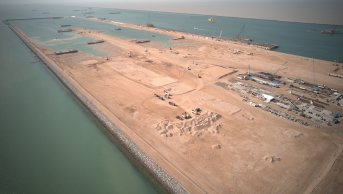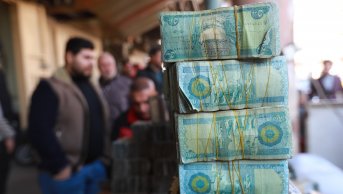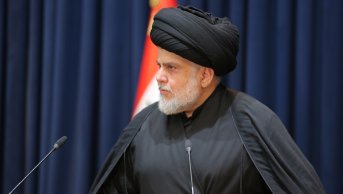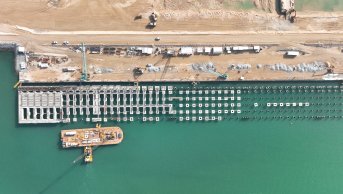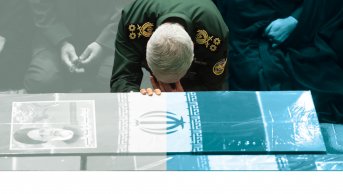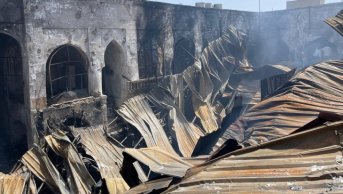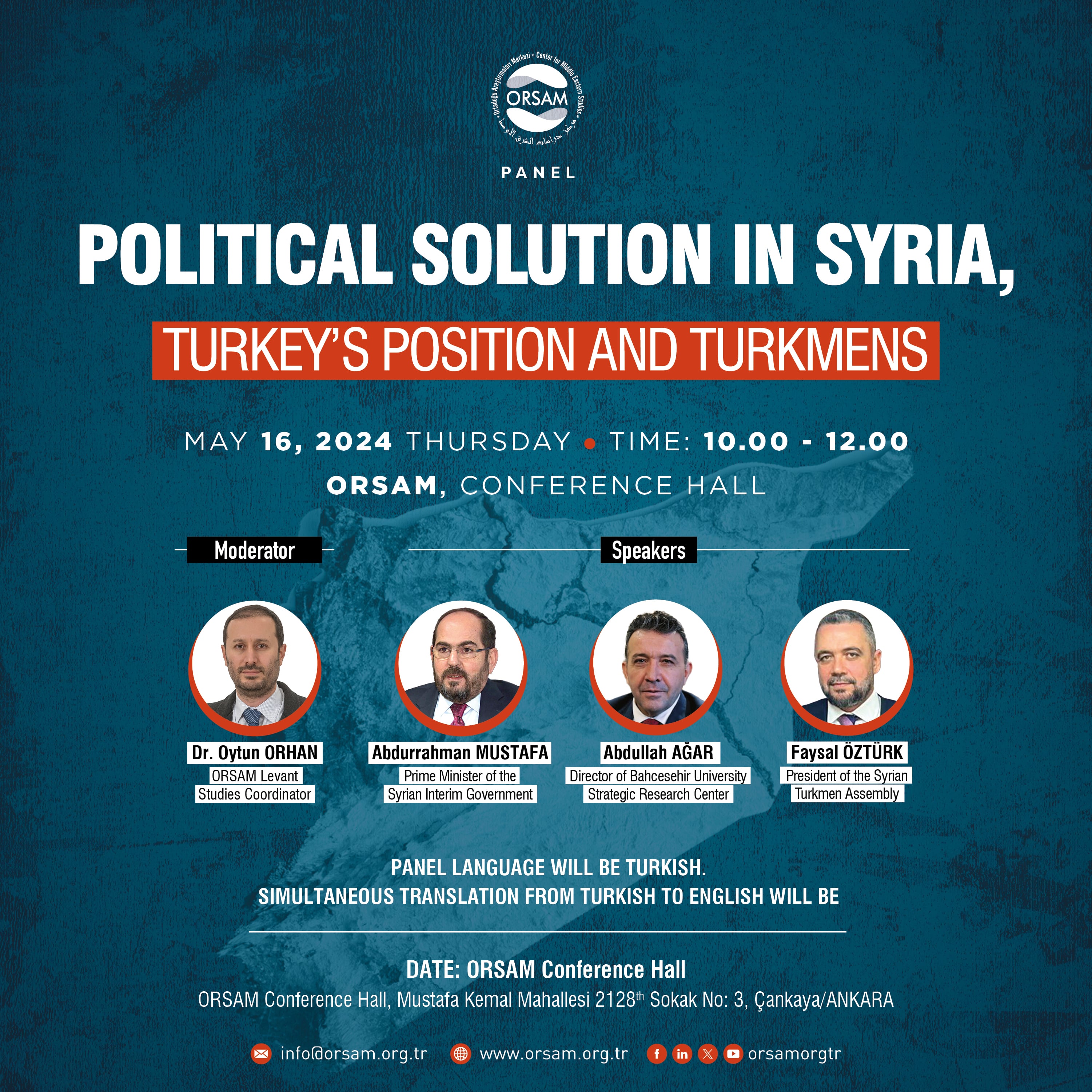Iraq May Become Destabilized After Provincial Council Elections
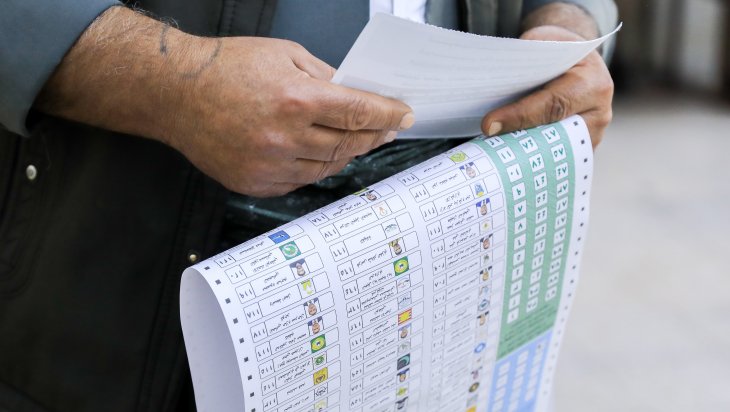
The provincial council elections, which were held across Iraq in 2013 and in Kirkuk in 2005, were held with a delay on December 18, 2023. The Iraqi Independent High Election Commissioner (IHEC) announced the voter turnout rate in the elections as 39 percent. The lowest turnout rate was 19 percent in Baghdad's Rusafa, and the highest rate was 65 percent in Kirkuk province. However, the legal amendment changing the definition of voter to "over 18 years of age and having received an electronic voter card" caused the voter turnout rate to be higher than expected. If the voter definition had been kept as "Iraqi citizen over the age of 18", the participation rate would have been approximately 25 percent. In this sense, it was seen that the trend of social distrust in politics in Iraq continued to increase. On the other hand, the boycott of the elections by the Sadrist Movement, which won 73 of the 329 seats in the 2021 parliamentary elections, also affected the turnout rate. The Sadrist Movement had received 10 percent of the valid votes in the 2021 elections.
In the elections, the pro-Iran Nabni Coalition led by Badr Organization and the Sadiqoun Bloc won 43 out of 285 seats in the provincial assemblies. In addition, the State of Law Coalition of former Iraqi Prime Minister Nouri al-Maliki, also known as pro-Iran, won 35 seats. After them, the Taqaddum Coalition, led by Mohammed al-Halbousi, the Speaker of the Iraqi Parliament who was dismissed before the elections, won 21 seats. Subsequently, former Iraqi Prime Minister Haider al-Abadi and Ammar al-Hakim's National State Forces Coalition won 23 seats, which is close to the number of votes in the 2021 elections.
The differences in the distribution of power between the results of the elections and the previous parliamentary elections, the local competitive environment on the ground of the provincial administrations to be formed and its reflection on Baghdad politics, and the parliamentary elections to be held in 2025 constitute destabilizing factors for the country's near future.
Divergent arithmetic after parliamentary elections
The new equation after the elections poses a dilemma between the 2021 parliamentary elections and the asymmetry in decision-making. A quota system is used throughout the country, which has no legal basis. In this context, Sunni parties negotiate, for example, for the position of parliament speaker, which has a Sunni quota, in line with the balance of power in Sunni politics. In this sense, the Hasim Coalition led by Iraqi Defense Minister Sabit al-Abbasi, which emerged as a result of the loss of power of the Taqaddum Coalition as the biggest Sunni actor, and the Azim Coalition may gain an important place in the balance of power. Moreover, important Sunni figures in Abbasi's coalition, such as Osama Nujaifi, Rafi al-Issawi, and Jamal Karbouli, may have influence beyond the electoral support that the Hasim Coalition enjoys.
On the other hand, the Nabni Coalition and the State of Law Coalition, which have increased the number of votes and seats won by the Shiites, are reversing the situation for the Sunnis and posing a challenge to the existing structure. With the change in the electoral system, these two coalitions also took the seats formerly won by independent candidates in the southern governorates. This gave both coalitions influence beyond their weight in parliament. In addition, the non-participation of the Sadrist Movement, which does not take place in central politics in terms of party politics but has a great influence across both bureaucracy and society, is an important challenge for Shiites. The Sadrist Movement's lack of involvement in politics despite its political dimension and the divergent approaches between the Nabni Coalition and the State of Law Coalition constitute a vulnerability for Iraqi Shiites.
Local-central rivalry and negotiations
Following the provincial council elections, governors and heads of provincial councils will be elected. In addition to these positions, appointments will be made for general directorates in the governorates, such as health and education, coordinated by ministries in Baghdad. Negotiations for these positions are taking place at two different levels: firstly, at the local level, and secondly, in Baghdad. The overlap between local and central alliances could lead to local discontent and conflicts at the center.
In this context, a special parenthesis needs to be opened for Kirkuk. The situation in Kirkuk is one of the provinces where the local and central divide has emerged. In the province, the PUK was the largest political entity, winning five of the 15 parliamentary seats. Turkmens and Arabs, on the other hand, need one vote for the election of the governor, securing eight of the 16 seats. Kirkuk-based Turkmen and Arab politics oppose a Kurdish governor, as they do not want a return to the time when the province was under de facto Kurdish rule. However, in terms of central politics, one could argue that the PUK has a stronger position than the Turkmen and Arabs and could gain more support for the governorship.
Beyond the identity-based local-central divergence in Kirkuk, the absence of a clear winning political formation for the same identity groups in provinces such as Baghdad, Nineveh, Muthanna, and Najaf creates a suitable ground for the divergence of politics at the central and local levels.
Elections expected in 2025
Following the completed provincial council elections, the post-election process is underway, and coordination meetings have been held under the leadership of Prime Minister Mohammad Shia al-Sudani to convene the provincial councils. Despite political tensions and delays, the process is moving forward. However, the tensions experienced during this process and the imbalances in the negotiations pave the way for new fractures for the next elections.
Iraq is expected to hold parliamentary elections in 2025. In the 2023 elections, actors who believe that they are not sufficiently represented in the administrations according to the number of votes and seats they obtained in the elections constitute the cracks in the fractures that will occur in the next election process. In this context, since the Sadr movement did not participate in the elections, it lost the governorship of Maysan and has no longer veto power against other candidates in administrative positions.
On the other hand, the political environment ahead of the 2025 elections is getting more and more tense due to several factors, such as the constant fragmentation in the Shiite politics since the 2005 elections, the inability of the Sunni leadership to cover all Sunni provinces, and the KDP-PUK divergence in Kurdish politics. As a result, the completion of the provincial council elections in Kirkuk, which have not been held for 18 years, may be seen as a success in the short term, but in the medium term, it may pave the way for the destabilization of the country.
In addition, the war in Gaza, the increasing activities of the terrorist organization PKK in Iraq, and Iranian attacks in Iraq are other factors that pose a challenge to the al-Sudani government and Iraq's stability. On the other hand, volatility in Iraq's security and fiscal discipline or in the energy market can be expected to disrupt strategic projects such as the Development Road, and Iraq's vision for the future. Therefore, Iraq, which has many factors to support development, such as its underground riches, geographical location, and young population, is expected to face many challenges in the near future.
This article was published on Independent Turkish on January 19, 2024, with the title " Vilayet meclisi seçimlerinin ardından Irak istikrarsızlaşabilir".

